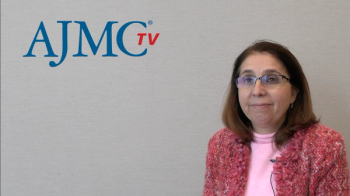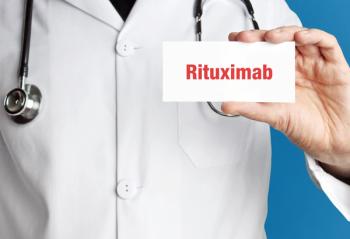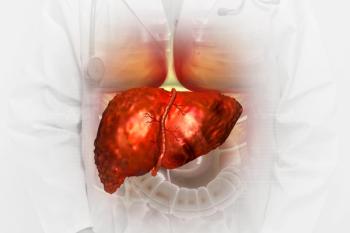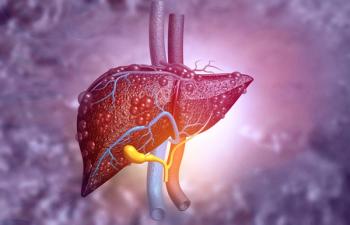
Ioana Bonta, MD, Georgia Cancer Specialists, discusses the evolving state of non-small cell lung cancer (NSCLC) treatments, their impact on patient outcomes, and the need to address ongoing disparities in these populations.

Ioana Bonta, MD, Georgia Cancer Specialists, discusses the evolving state of non-small cell lung cancer (NSCLC) treatments, their impact on patient outcomes, and the need to address ongoing disparities in these populations.

In the wake of novel bispecific and chimeric antigen receptor T-cell therapies for various cancers, geography still plays a big role in patients' abilities to receive such treatments.

This multicenter study sheds more light on sex-based differences in aortic stenosis (AS) and argues the benefits of using cardiovascular magnetic resonance (CMR) to assess sex-based risks in AS.

Emerging evidence suggests that fibroblast growth factor 21 (FGF21) could play a future part in the treatment of metabolic dysfunction-associated steatohepatitis (MASH).



This year's report demonstrates the potential impact of automated processes on medical and dental industry spending, with projected savings amounting to $20 billion.

A rituximab and lenalidomide combination for treating non-Hodgkin lymphoma (NHL) could play a greater role in future clinical trials.

Antoine Keller, MD, founded HeartSense with the purpose of uncovering and addressing the cardiovascular needs of rural, often underserved communities.

Reducing intravenous (IV) isatuximab delivery from 75 minutes to 30 minutes could provide a wealth of benefits to patients with multiple myeloma (MM) and health care systems alike.

Results from the AZALEA-TIMI 71 phase 2 trial showed great promise for abelacimab to transform care for high-risk patients with atrial fibrillation.

The Connect MM Registry is the longest-running and largest registry in the US, providing invaluable prognostic insights into various patient and disease characteristics.

As a growing number of young adults with primary liver cancer (PLC) related to metabolic dysfunction–associated steatohepatitis (MASH) age, developing coherent strategies to combat the metabolic disease epidemic is critical.

Favorable bleeding outcomes related to abelacimab have positioned the medication as a potential game changer in the treatment of atrial fibrillation.

A new meta-analysis adds to the body of literature promoting the benefits of exercise for patients with cancer.

With a majority vote by the Senate Finance Committee, Robert F. Kennedy Jr's nomination for health secretary is pushed to a vote from the full Senate.

A polypill for preventing cardiovascular disease has the potential to address health inequities and expand health care access for low-income populations.

A looming Supreme Court ruling will answer questions about the legality of the Affordable Care Act mandate for providing some preventive care services at no cost.

The design of the Enhancing Oncology Model (EOM) was a perfect fit for Minnesota Oncology.

Extranodal non-Hodgkin lymphoma (NHL) makes up over one-third of NHL cases, yet remains understudied and in need of deeper research considerations.

The latest semaglutide (Ozempic; Novo Nordisk) approval is set to tackle a major need for patients with both type 2 diabetes (T2D) and chronic kidney disease (CKD), addressing their cardiovascular (CV) and kidney disease risks.

The investigators believe their decades-spanning analysis underscores the need to address access barriers to anti-obesity therapeutics.

Kirollos Hanna, PharmD, BCPS, BCOP, FACCC, director of pharmacy at Minnesota Oncology, discusses how the prospect of patient longevity, amidst advancing therapeutics, factors into oncology care.

Serum soluble interleukin-2 receptor (sIL-2R) levels have been a great diagnostic tool for non-Hodgkin lymphoma (NHL) and could provide further benefits for distinguishing soft-tissue NHL from other soft tissue tumors.

Patients with metabolic dysfunction-associated steotohepatitis (MASH) who are already taking a glucagon-like peptide-1 receptor agonist (GLP-1RA) could see their liver health improve with the addition of efruxifermin.

Bispecific antibodies have altered the multiple myeloma (MM) treatment landscape, but some practices still lack enough familiarity with these therapeutics to deliver them in outpatient settings.

Clinically significant reductions in bleeding underscore abelacimab’s strong potential to address an unmet need for patients with atrial fibrillation (AFib).

Analyzing patients' travel time to receive emergency surgical services provides valuable insights that can inform policy reform and address the needs of rural communities.

Infection risk remains a prominent clinical concern for patients with multiple myeloma (MM), even with the advent of modern, novel therapies.

Peptidomics offered new diagnostic insights into the underlying processes of metabolic dyfunction-associated steatotic liver disease (MASLD).

259 Prospect Plains Rd, Bldg H
Cranbury, NJ 08512
© 2025 MJH Life Sciences®
All rights reserved.
